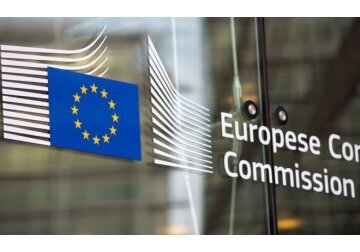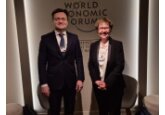
The EU has offered Moldova a €30 million emergency aid package as a first step to help it overcome the severe energy crisis triggered by Gazprom
As noted in a statement by the European Commission, within the framework of this package, the EU is ready to finance the purchase and transportation of natural gas to the Transnistrian region to help restore electricity and heat supply to more than 350,000 residents of the region by 10 February. The package of measures can also ensure electricity supplies from the left bank of the Dniester to the right. In addition to facilitating the purchase and transportation of gas to Transnistria, the EU intends to provide Moldova with a financial aid package in the coming weeks aimed at mitigating the social consequences of the crisis for Moldovan citizens, as well as laying the foundation for long-term energy sustainability and economic growth in Moldova. European Commission President Ursula von der Leyen said that in the middle of winter, more than 350,000 residents of the Transnistrian region were left in the dark and cold because Russia decided to stop gas supplies. "We simply cannot accept that people on our continent do not have access to the most basic services. But hard times reveal true friends. That is why today we are throwing a lifeline. We will deliver gas to the people of Transnistria and restore their access to electricity and heating," she said. As noted, the EU emergency aid package to overcome the energy crisis in Moldova is being provided at a time when the Transnistrian region is experiencing an acute energy crisis. Today's package will prevent further deterioration of the humanitarian situation and ensure natural gas to meet urgent needs. The possibility of providing support through coal supplies from Ukraine is also being considered. In addition to facilitating the purchase and transportation of gas, the EU also supported the allocation of gas transportation capacities along the entire gas supply route from Bulgaria and Romania to the entry points into the Moldovan gas transportation system. Today’s EU offer is targeted assistance to Moldova, including the Transnistrian region, in the amount of €30 million for the purchase of gas that can be used to generate electricity and heating for the Transnistrian region and electricity for the right bank of the Dniester. Thanks to the funding provided under this emergency plan, Moldova can purchase gas from suppliers in Ukraine and on the European market. A broader package of assistance is also being prepared to further support the whole country in these difficult times. In particular, the more comprehensive EU energy package will aim to mitigate the impact of the crisis and reduce pressure on energy prices, laying the foundation for long-term energy stability and resilience in Moldova. It will build on the Moldova Growth Plan, which is being finalised. The European Commission’s materials note that Gazprom failed to fulfil its contractual obligations by stopping gas supplies to the Transnistrian region of Moldova. This has resulted in a serious energy crisis with huge economic and social consequences for the people of Moldova and a devastating impact on the livelihoods of people in the Transnistrian region. The EU has already provided €240 million in direct budget support for Moldova’s energy system in 2021-2024 to help the most vulnerable people. In the 2023-2024 heating season, more than 750,000 households received compensation through the EU-supported Energy Vulnerability Reduction Facility. In addition, since 2021, the EU has provided €67 million in grants, which have mobilised over €640 million in investments through international financial partners. They support Moldova’s energy efficiency in public and residential buildings and the transition to green energy. The EU also supports capacity building and piloting of the Moldovan Residential Energy Efficiency Fund. Moldova has also received €295 million in EU macro-financial assistance since 2023, of which €220 million was provided in the form of loans and €75 million in grants. Among other priorities, this programme focused on energy sector reforms. Since 2022, Moldova’s power grid has been connected to the European continental electricity grid. On 1 December 2024, the EU export capacity to Moldova and Ukraine was increased from 1.7 to 2.1 GW, including 315 MW for Moldova. Later, in December, an agreement was reached under which Moldova would be able to use the capacity not used by Ukraine. In addition, with the help of the EU, the right bank of the Dniester was able to completely abandon Russian gas supplies in 2022, at the height of the gas supply crisis. Since then, the right bank of the Dniester has been supplied exclusively from EU gas markets.// 27.01.2025 — InfoMarket.







